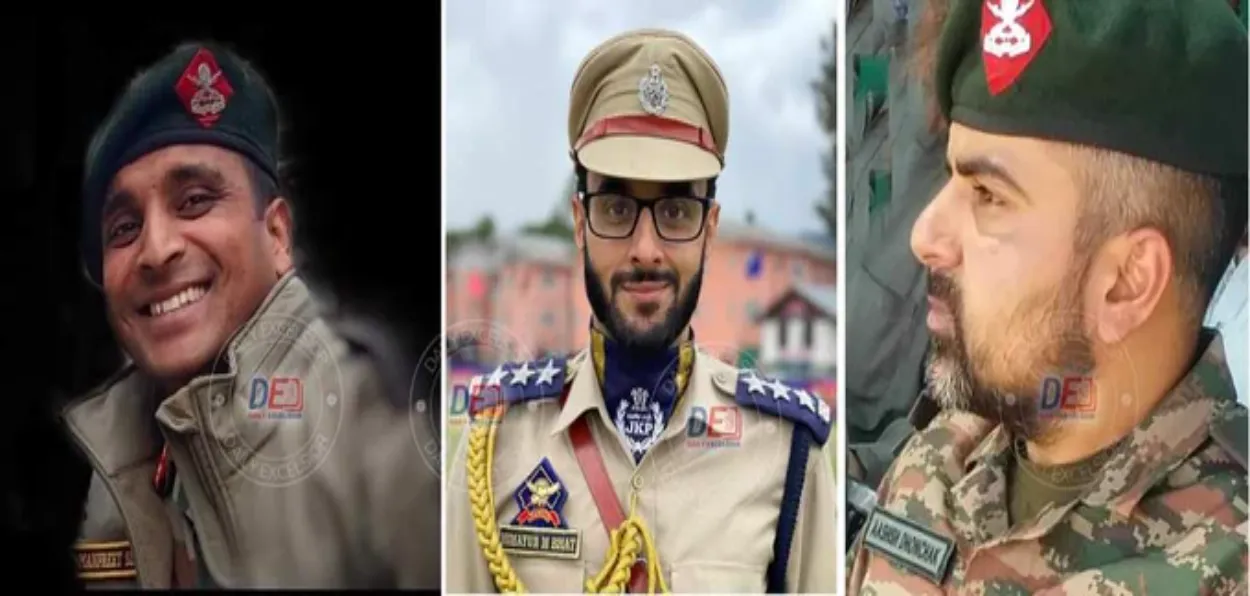
Saquib Salim
On Wednesday, India read another news of a deadly terrorist attack in Kashmir which claimed the lives of two Senior Army officers - Colonel Manpreet Singh, Commanding Officer of 19 Rashtriya Rifles, Major Ashish Dhonack - and Deputy Superintendent Humayun Bhat of the jammu and Kashmir Police, in the Haloora village of Garol area of Anantnag district in the morning hours of Wednesday. Just a day before Pakistani media reported that the Supreme Court of Pakistan had upheld the conviction of two former Pakistan Army officers in a failed coup in 1995.
For an uninformed reader, these might be unconnected events but it’s not so.
What was the 1995 failed coup attempt?
On 19 October 1995, The Log Angeles Times reported: “The arrests of three dozen military men, including two generals, with suspected ties to Islamic fundamentalists have sent shivers through Pakistan”. The report further said, “Government officials are being tight-lipped about what the arrested soldiers allegedly did or planned. Well-placed sources said they were plotting to stage a fundamentalist coup. Others said the men wanted to aid insurgents fighting in the Indian state of Jammu and Kashmir.”
Pakistani media reported and the government accepted arrests of more than 38 high-ranking army officials only after the international media started reporting the event. The Los Angeles Times pointed out, “During a weekend meeting with Pakistani newspaper editors, Bhutto confirmed that the arrests were made last month”.
According to the reports on 26 September 1995, guards stopped a car for routine check only to find rocket launchers and AK-47 in it. At least two high-ranking army officials were in that car. Within a few hours, several arrests were made including
Major General Zaheerul Islam Abbasi, Brigadier Mustansar Billah, Colonel Mohammad Azad Minhas, and Colonel Inayatullah Khan. Qari Saifullah Akhtar, an Islamic preacher who worked closely with Al-Qaeda and Taliban, was arrested as an Islamic ideologue but he turned approver against the army generals.
Arrested officers had planned to kill the Prime Minister, President, and army’s high command on 30 September. After that, they had to declare Islamic law and proclaim a holy war (Jihad) to conquer Kashmir.
Yes, you read it right. According to the court proceedings and news reports one of the primary aims of this coup was to win Kashmir from India. Several army men believed that the arms recovered from these arrested officers were for Kashmiri terrorists. And they had a reason to believe this.
Major General Zaheerul Islam Abbasi, ring leader of this coup and head of infantry training at the time, had played an important role in the war against India in Kashmir. In 1988, Abbasi was a military attache at the Pakistan Embassy in New Delhi. On the day when Benazir Bhutto became the elected Prime Minister of Pakistan in New Delhi Abbasi was arrested by Delhi Police for snooping. He was alleged to be in contact with Subhash Chandra Dutta, a lawyer in Delhi, who passed documents related to Indian military bases.
Pankaj Pachauti for India Today of 31 December reported: “Abbasi had been boasting that he had successfully disinformed Indian defense analyst Ravi Rikhye, whose forthcoming book The 1989 Scenario could embarrass South Block. Still in manuscript form, the book is a fictional account, in which Pakistan occupies Siachen. China annexes Arunachal Pradesh, while militants get 'Khalistan'. The curtain came down with Soviet troops in New Delhi and a military coup. Just a month back intelligence plants had appeared in a section of the media alleging that Rikhye had been won over by Abbasi and Pakistani air attache Group Captain Qazi Javed Ahmed. Journalists friendly with the attaches were also shadowed. Rikhye however denies the charge. "I was not out to cause embarrassment but was trying to caution the people that such a scenario could emerge," says he.”
Is it surprising that Pakistan in Kashmir, China in Arunachal, and Khalistani separatists in Punjab continue to pose threats the Indian nation?
Abbasi was sent back to Pakistan. There he was made Force Commander Northern Area (FCNA) and tried unsuccessfully to occupy the heights of Kargil. Lt Gen V K Ahluwalia writes, “he had launched an attack on the LoC without taking clearance from the Army Chief General Mirza Aslam Beg. Due to the botched-up operation, ‘Pakistan lost some 50 men and 10 officers in that encounter, and Maj Gen Abbasi was removed from command".
J. N. Dixit in his book India-Pakistan in War and Peace further claimed that General Parvez Musharraf was the designated head of the Islamic State that had to be formed after the coup led by Abbasi. Musharraf later led the army into Kargil, something Abbasi couldn’t do.
ALSO READ: Aborted coup case exposes the link between terrorism and Pak Military
All these army men received jail terms but Musharraf came to power within four years of this event riding on anti-Indian sentiments after the Kargil war. Al-Qaeda and Taliban-led terrorists ruled the roost after that and radicalized the Pakistani society even further.
The episode should be taken as a lesson by the Pakistan government that for their stability they need to stop meddling in India’s internal affairs in general and Kashmir in particular.
